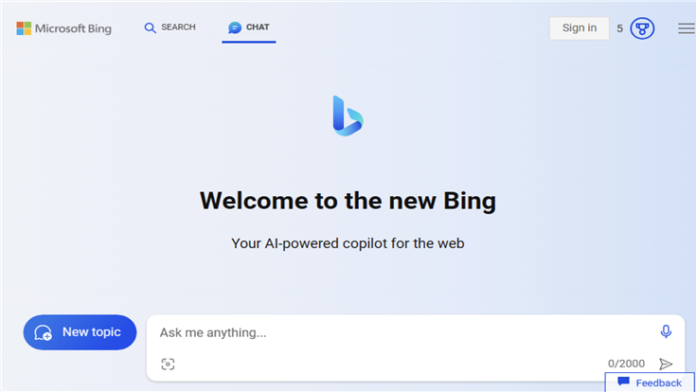[ad_1]
Users looking for software downloads may be tricked into visiting malicious websites via their interaction with Bing Chat.
In February 2023, Microsoft disclosed its new AI-assisted search engine, Bing Chat, powered by OpenAI’s GPT-4. Even though Google has been dominating the search industry for years, this event was significant enough to generate not only interest but also plant the seed for a possible change in the balance in the future.
Considering that tech giants make most of their revenue from advertising, it wasn’t surprising to see Microsoft introduce ads into Bing Chat shortly after its release. However, online ads have an inherent risk attached to them. In this blog, we show how users searching for software downloads can be tricked into visiting malicious sites and installing malware directly from a Bing Chat conversation.
Malvertising via a Bing Chat conversation
Bing Chat is an interactive text and image application that provides a very different experience for online searches. After six months of it being public, Microsoft celebrated user engagement with over one billion chats.
Ads can be inserted into a Bing Chat conversation in various ways. One of those is when a user hovers over a link and an ad is displayed first before the organic result. In the example below, we asked where we could download a program called Advanced IP Scanner used by network administrators. When we place our cursor over the first sentence, a dialog appears showing an ad and the official website for this program right below it:

Users have the choice of visiting either link, although the first one may be more likely to be clicked on because of its position. Even though there is a small ‘Ad’ label next to this link, it would be easy to miss and view the link as a regular search result.
Phishing site serves malware
Upon clicking the first link, users are taken to a website (mynetfoldersip[.]cfd) whose purpose is to filter traffic and separate real victims from bots, sandboxes, or security researchers. It does that by checking your IP address, time zone, and various other system settings such as web rendering that identifies virtual machines.
Real humans are redirected to a fake site (advenced-ip-scanner[.]com) that mimics the official one while others are sent to a decoy page. The next step is for victims to download the supposed installer and run it.

The MSI installer contains three different files but only one is malicious and is a heavily obfuscated script:

Upon execution, the script reaches out to an external IP address (65.21.119[.]59) presumably to announce itself and receive an additional payload.
Search evolves, malicious ads follow
Threat actors continue to leverage search ads to redirect users to malicious sites hosting malware. While Bing Chat is a different search experience, it serves some of the same ads seen via a traditional Bing query.
In this case, the malicious actor hacked into the ad account of a legitimate Australian business and created two malicious ads, one targeting network admins (Advanced IP Scanner) and another lawyers (MyCase law manager):

With convincing landing pages, victims can easily be tricked into downloading malware and be none the wiser.
We recommend users pay particular attention to the websites they visit but also use a number of security tools to get additional protection. Malwarebytes provides security software for both consumers and businesses that includes web protection, ad blocking and malware detection.
This security incident was reported to Microsoft along with a few other related malicious ads.
Indicators of Compromise
Ad URL and cloaker
mynetfoldersip[.]cfd
Fake website
advenced-ip-scanner[.]com
Malicious MSI
ca83b930c2b34a167a39dc04c7917b9f360a95586bce45842868af6b9ad849a2
Script C2
65.21.119[.]59
Malwarebytes EDR and MDR removes all remnants of ransomware and prevents you from getting reinfected. Want to learn more about how we can help protect your business? Get a free trial below.
[ad_2]
Source link
